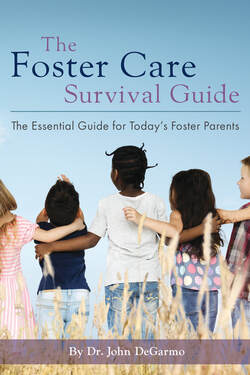
I have been blessed to adopt three from foster care over the years.
Though many in society may not recognize it, adoption is all around us, and is a normal part of how thousands of families come together. Indeed, six out of every ten Americans are touched by adoption in some fashion. Along with this, roughly 7 million Americans have been adopted. Each year, roughly 135,000 children are adopted in the United States.
When a child is placed into foster care, the initial goal is to have the child reunified with his birth parents, or a member of his biological family. Certainly, the initial intent of placing a child into care is that the placement be a temporary, with reunification the main objective.
Yet, there are those instances when reunification is not possible, and the child is placed through the court system for adoption. There are several reasons why a foster child might be placed up for adoption. First, the custody rights of the birth parents are voluntarily terminated; secondly, the custody rights of the birth parents are terminated by a court order; and third, the child is up for adoption due to the death of birth parents. For many foster parents like myself, adoption is the natural next step, as the children placed in our homes become a valued and very much loved member of our family.
While adoption may be a gift and a blessing for so many, it does not automatically lead to a "happy ever ending" for all involved. What many adoptive parents discover after an adoption is Post Adoption Depression. Post Adoption Depression Syndrome, or PADS, is a term that was first in 1995 by June Bond. Bond noticed how adoptive parents’ affect did not reflect the joy or happiness that she had expected to see as she performed post-placement home visits. Indeed, some studies indicate that up to 65% of adoptive mothers experience PADS at some point.
Join the thousands who receive Dr. DeGarmo’s FREE foster care newsletter. Simply fill out the form below.
Feelings of anxiety, depression, and stress may occur with the adoptive parent after the adoption has taken place. There may be several reasons why adoptive parents experience this form of depression following an adoption. For some, PADS may derive from sleep deprivation after the adoption. Some may experience unresolved feelings of grief and loss from past trauma may surface within the parent . For others, it may be unresolved infertility issues that were never addressed. Still, other adoptive parents may struggle with the challenges of attachment or bonding with the child that were more difficult than first expected.
For many, Post Adoption Depression Syndrome may result from a lack of support services for the entire family after the adoption. While there are foster parent support groups, and they are so very important to be sure, there are few adoptive parent support groups. For those who have adopted, it is important to surround yourself with others who have "walked the walk", so to speak. Instead, many adoptive parents try to "tough it out," if you will, during those difficult and stressful times. Thus, many adoptive parents often feel isolated, due to feeling that no one understands the challenges that adoption can bring.
To be sure, Self Care is critical for not only foster parents, but also adoptive parents. As I say often when speaking at foster care events, if you do not take time to care for yourself, you will not be able to care for the children who so desperately need you. Another crucial way to help address PADS is the gift of time. Bonding and attachment do not happen overnight. Instead, bonding can be a slow process, therefore allow it to happen naturally, over time, and remain patient. Remember how the child may feel about adoption. He will likely re-experience feelings of loss during the adoption process. Allow him to discuss his feelings of grief and loss with you as you listen attentively to him, validating his feelings and emotions. If he should ask any questions about his biological parents or birth family, it is important that you answer them as honestly as you can. At the same time, help him to transfer attachment from his birth family to yours by ensuring that he is included in all aspects of your family, and when possible, incorporate parts of his previous family’s traditions into your own, as it helps him to feel more comfortable. After all, his birth family gave him his appearance and gender, his intelligence, his temperament, talents, and of course, his life. These, of course, will never change.
Become a Special Member of The Foster Care Institute-Amazing Benefits!
The adoption of three children from foster care has led to so many adventures, challenges, joys, and experiences for my family. Just because we signed some paper work, making the children legally ours, does not mean that the new discoveries and challenges fade away. On the contrary, we are learning new things about these children on an almost daily basis. Perhaps the greatest discovery my family and I are learning is that the amount of love one can hold in a heart never seems to end. My family has not only grown in size from these adoptions, they have grown in love, as well.
For much more on Post Adoption Depression Syndrome, be sure to watch the Foster Care Institute training webinar on this very topic, as we examine it in full, offering many solutions and tips designed to help you during this emotionally challenging time.
-Dr. John
For more, purchase your own personally signed copy of The Foster Care Survival Guide: The Essential Guide for Today's Foster Parents.



 RSS Feed
RSS Feed